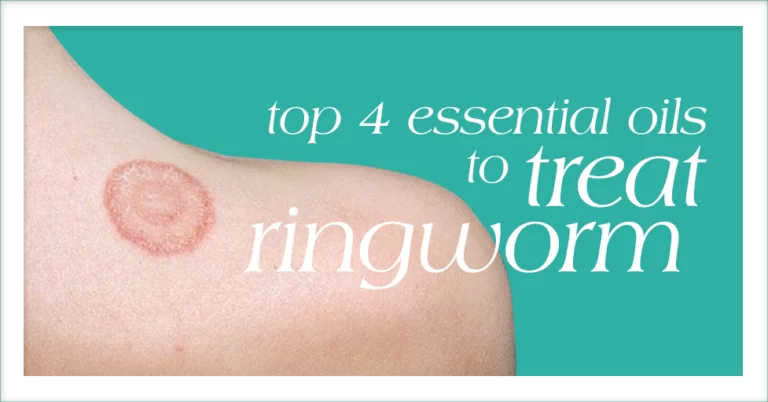Natural Ways To Help ADHD Using Aromatherapy
Attention deficit hyperactivity disorder – commonly known as ADHD – is a common behavioral disorder that affects about 10% of the population, with men being three times more likely to be diagnosed than women. This disorder causes a person to tend to act impulsively without thinking, and children diagnosed with it tend to be hyperactive and have trouble focusing in school. It’s important to remember, however, that all people will act in this way sometimes – particularly if they are excited or anxious – so a doctor’s diagnosis is crucial to treating this; do not diagnose anyone on your own!
Symptoms of ADHD
ADHD is broken down into 3 sub-types, each having their own recognizable pattern of behaviors:
Inattentive:
- Trouble paying attention to details or a tendency for careless errors in work or other activities
- Difficulty focusing on tasks or activities
- Apparent listening problems
- Difficulty following instructions
- Organizational problems
- Dislike or all together avoidance of tasks which require mental effort
- A tendency to lose items (I.e. toys, notebooks, homework, etc.)
- Easily distracted
- Forgetfulness in daily activities
Hyperactive-Impulsive:
- Tendency to fidget or squirm
- Difficulty remaining seated
- Excessive movement or exercise
- Difficulty remaining quiet
- Constantly moving
- Blurting out responses prematurely
- Difficulty waiting
- Problems with interrupting or intruding
Combined:
- This is a combination of the other two types, and is the most common subset of ADHD.
How Can Aromatherapy Help ADHD?
The use of essential oils in treatments for various physical and mental ailments is called Aromatherapy. Essential oils are thought to have beneficial effects on physical health and mental well-being, when used safely and properly. These essential oils are believed to help control the symptoms of ADHD
Essential Oils to Try
-
Lavender: Has a calming effect and reduces feelings of anxiety
-
Roman Chamomile: Soothes and comforts
-
Mandarin: Quiets the nerves, especially when combined with Lavender
-
Ylang Ylang: Sedates and calms the emotions
-
Vetiver: Has a calming effect and focuses the mind
-
Patchouli: Soothes the nervous system
-
Frankincense: Supports the immune system
The best way to use essential oils to help with ADHD is with a Nebulizing Essential Oil Diffuser. This type of aromatherapy diffuser releases essential oil into the air in the purest undiluted or unadulterated form to administer maximum therapeutic benefits.


Very interesting.
Interesting! Ready to try!
Interesting article
Interesting research and connections! Frankincense is amazing, soo many uses and aids!
Great read! You guys always post up informative content! 🙂
Lavender is my favorite for restfulness
I believe essential oils can make a difference in so many ways, so this is another great use for them.
I love essential oils for their medicinal properties and also for just scenting topical ointments/cremes. I have never actually use essential oils for aromatherapy at home and am interested int he benefits it can have been used as that. I am glad that this site offers helpful blog post like this to help educated as people explore essential oils and aromatherapy. I personally do not know anyone with ADHD but I feel that this could also help with Autism as well as my boyfriend’s younger cousin has serve Autism and some times gets very anxious, I would like to see if it would have similar affects on him.
I am new to oils and only have a few expensive so it takes time. But it is nice to read a study how oils can help in different ways
I think this is an awesome finding too many kids are put on these harsh amphetamines that make them zombies. Aromatherapy is mind blowing!
Very interesting article because it can help people who got some of those symptoms in a variant degrees too…Or as people says in column, to calm down, to ease the nervous system, to relax, etc…
I’m not ADHD, but I think these could help with my stressed-out brain!
Super informative article! Never knew scent is so powerful and can be used as a therapy in itself!
What a great informative article! I didn’t know that there are many different oil to help this problem. Thank you for sharing it!
Very interesting article. I agree that natural treatments are the way to go.
good article
Me parece interesante la correlacion entre como aromas pueden ayudar en autismo y otras condiciones. Mas aun creo que la combinacion de reiki con aromaterapia es mas efectiva.
Nothing wrong with using some essential oils to calm the nerves.
It never knew just how beneficial aromatherapy could be to so many different illnesses, especially ADHD. I keep my diffusers going, and now I’m considering adding them to my kids rooms.
With this info in mind I would love to put my lavender to use. Thanks for the info, very insightful.
Even if one doesn’t have an ADHD diagnosis, they still have great benefits!
The power of scent is just magnificent! 🙂
What a great post! Needs to be shared with everyone- especially people who have kids that are being diagnosed with ADHD and ADD and being put on harmful medications!
Another great article. Thanks!
I’m really just learning about essential oils. I found your article very informative and I think it’s a great way to help parents of children with ADHD.
While it never would have occurred to me, it makes sense that certain combinations of essential oils would be helpful for some symptoms of autism. I’ll bet there are a LOT of people who could benefit from this knowledge!
Great article, lots of good info.